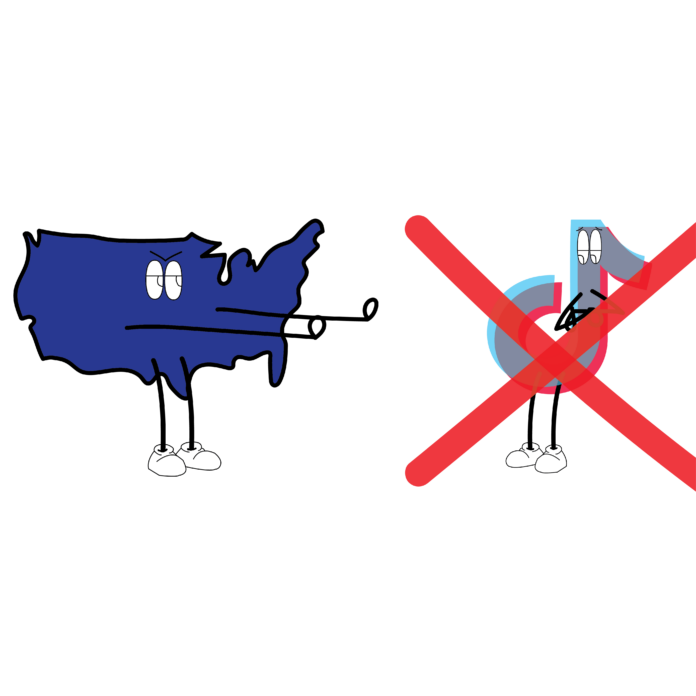TikTok’s CEO Shou Zi Chew fielded questions and criticism from distrusting U.S. lawmakers for nearly five hours on March 23.
The bipartisan hearing reaffirmed the Biden Administration’s threats of a total ban on the app if parent company ByteDance refused to sell to a company outside of China’s jurisdiction.
The U.S. and 14 other countries have already banned TikTok on all government devices. Australia became the most recent to ban the app on April 4.
U.S. lawmakers argue that the app poses a national security risk as ByteDance can be legally required to disclose data to the Chinese Communist Party if ordered. Others worry the app could be used by the Chinese to influence young Americans.
Chew denied allegations that the Chinese government has any say on how the private company manages content or data.
Hours before his testimony, the Chinese Ministry of Commerce opposed the sale of TikTok. Chew tried to separate TikTok from China by explaining his Singaporean nationality, but the House Committee on Ways and Means had none of it.
The only countries that have issued total bans on TikTok are India, Iran and Taliban-controlled Afghanistan. Jordan also issued a temporary ban in December 2022 that has yet to be lifted, according to Roya News, a news organization for English speakers based in Jordan and Palestine.
India enacted their ban in 2019, but according to Statista, TikTok had around 99.8 million downloads in the country in 2020. The U.S. had the second-most downloads at around 45.6 million.
The app has also been banned by several EU institutions including The European Parliament, the European Commission and the EU Council.
TikTok is not the first social media app to be challenged by U.S. lawmakers. In 2018, Facebook was in the hot seat when it sold user information to Cambridge Analytica and other third parties. One congressman even accused Facebook CEO Mark Zuckerberg of lying to Congress during the hearing about who has control over user data.
However, according to Rep. Jay Obernolte (R-CA), Facebook solely poses “privacy concerns” while TikTok poses “national security concerns.” If both social media giants pose a threat to user data, the question arises of why they are being treated differently.
“Honestly speaking, this hearing was politically motivated,” Nazmul Rony, an assistant professor at SRU specializing in social media advertising and brand experience, said. “Why do I say that? Because TikTok has been doing this for years and has paid multiple fines.”
Most recently on April 4, Britain’s data protection authority, the Information Commissioner’s Office (ICO), issued TikTok a $15.9 million USD fine, according to The New York Times.
It argues that the app inappropriately allowed up to 1.4 million children under the age of 13 to use the app in 2020, which violates U.K. data protection rules requiring parental consent for organizations to use children’s personal information. The ICO has previously fined Facebook for similar offenses.
The ICO also alleges that TikTok did not do enough to identify and remove underage users and failed to act even after some senior members raised concerns internally.
Rony calls Congress’ treatment of TikTok a double standard and argues Congress cannot solely blame the app for being the newest offender. Many social media platforms are correctly accused of misusing data. While concerns about TikTok are legitimate and valid, the timing of the hearings is politically motivated to pressure the Chinese government, he said.
“If you want to make sure you’re restricting everything, then you should also ask the U.S. companies not to work with the Chinese government or Chinese companies,” he said.
At the same time Chew was testifying before Congress, Apple’s CEO Tim Cook attended the China Development Forum to meet with China’s minister of commerce and discuss industrial and supply chain issues.
David Kershaw, an SRU political science professor specializing in public policy, agrees that the hearings are politically motivated.
“The right-wing ecosphere has been flooded with blaming everything on China,” he said. “We’re getting close to an election, so this is going to ramp up even more.”
TikTok is also most popular among the younger generation and tends to lean more toward liberal ideologies. Its supporters argue that banning the app would eliminate a primary means of communication limiting First Amendment rights. They also argue regulation and supervision should come before a ban.
“Anytime a politician goes for the extreme, they’re benefitting from it,” Kershaw said. “You should be responsive to figure out if we’re at risk, but to be so draconian, there’s something suspicious there.”
To calm U.S. tensions, Chew discussed Project Texas in his testimony. The $1.5 billion project moves all U.S. user data onto U.S. soil to be managed by Oracle, which is based in Austin, Texas.
That data would be blocked from TikTok employees in China via firewall, but Rony questions how easy that firewall may be to bypass.
Regardless, Rony thinks businesses would lobby against a total ban because they would lose portions of their audience and sales as TikTok has become heavily utilized for marketing. If one social media company can adhere to strict privacy laws, they all should be able to, he believes.
He also predicts that as big tech companies continue mass layoffs, the public will see more groups become vocal about privacy and security, forcing more transparency.








